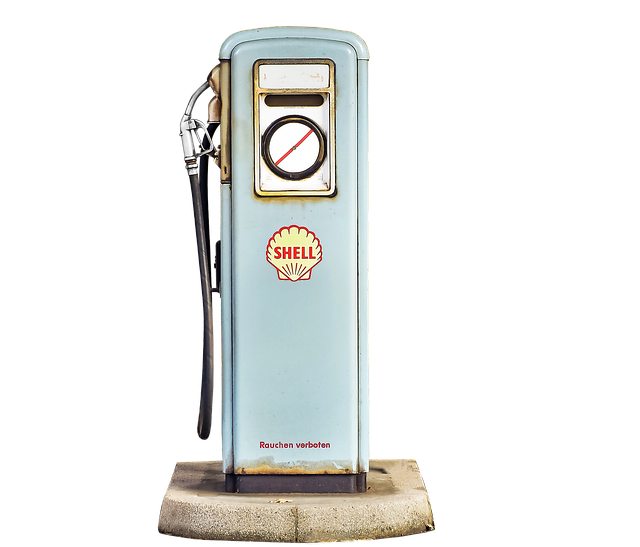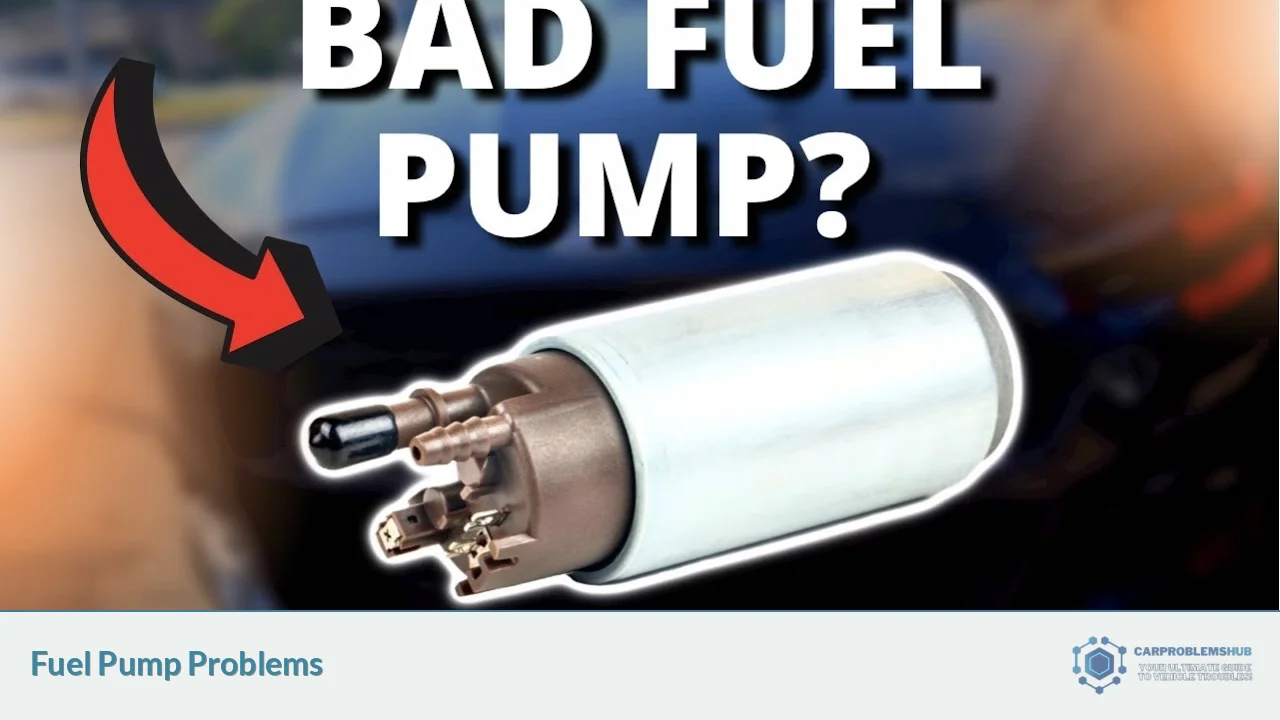The Ultimate Guide to Common Automotive Problems
Navigating the world of automotive maintenance and repairs can seem daunting, especially for new car owners or those unfamiliar with their vehicles. Understanding common automotive problems is essential for smooth driving, safety, and the longevity of your vehicle. Whether it’s a peculiarity in the engine, a quirk in the transmission, or an issue with the electrical system, being proactive is key to avoiding costly repairs. This guide explores various aspects of common automotive problems, from engine-related issues to electrical system malfunctions. By familiarizing yourself with potential pitfalls and symptoms, you can make informed decisions when it comes to repair and maintenance, ensuring that your vehicle remains reliable throughout its lifespan. So, let’s dive deeper into the intricate world of automotive problems and discover what every vehicle owner should know.
Common Problems
Here are the top 10 significant automotive problems that you may encounter:
- Engine Overheating: Caused by coolant leaks, a faulty thermostat, or a clogged radiator. Typical repair costs range from $150 to $1,000, often occurring around 80,000 miles.
- Transmission Slipping: This often indicates low transmission fluid levels or worn components. Average repair costs can reach $1,500 to $3,000, usually detected around 100,000 miles.
- Electrical Short Circuits: Result from damaged wiring or faulty components, leading to issues like malfunctioning lights or failure to start. Repair costs can range from $100 to $500, typically seen across all vehicle ages.
- Brake Wear: Pads and rotors deteriorate over time, requiring replacement. Costs vary based on the vehicle but generally range from $300 to $800, often requiring attention every 30,000 to 70,000 miles.
- Suspension Issues: Struts and shocks can wear out, affecting ride quality and handling. Repairs typically cost between $400 and $1,500, usually recognized after 60,000 miles.
- Fuel System Problems: Clogged fuel filters or failing fuel pumps can lead to poor performance or stalling. Repair costs can range from $150 to $1,000 and may arise around 100,000 miles.
- Oil Leaks: Commonly caused by a degraded gasket or seal, these leaks can lead to serious engine damage if not addressed. Repair costs can vary from $150 to $1,200, usually identified at any mileage.
- Coolant Leaks: Stemming from hoses or gaskets, this problem can escalate into engine overheating. Repair costs typically range from $150 to $1,000, regularly discovered by 80,000 miles.
- Exhaust System Failures: Prone to rust and wear, this can lead to decreased performance and increased emissions. Repairs often cost between $200 and $1,500, noticed by 100,000 miles.
- Starter Motor Failure: A malfunctioning starter can prevent your vehicle from starting. Repair costs usually run from $200 to $400, recognized at any mileage.
Engine Issues
Engine problems are among the most critical issues a vehicle can face. Common symptoms include strange noises, loss of power, or warning lights illuminating on your dashboard. Here are some prevalent engine-related problems:
-
Faulty Spark Plugs: Symptoms include misfires, poor fuel efficiency, and hesitation during acceleration. Solution: Replace spark plugs and wires if necessary. Average cost: $100-$300.
-
Timing Belt Failure: A broken timing belt can lead to severe engine damage. Symptoms include loud noises and overheating. Solution: Replacing the timing belt before it fails is crucial. Average cost: $500-$1,000.
-
Oil Consumption: High oil consumption can indicate worn piston rings or gaskets. Symptoms include frequent refills and exhaust smoke. Solution: A thorough inspection may lead to an engine rebuild. Average cost: $1,000-$4,000.
-
Engine Misfiring: Caused by issues like faulty sensors or fuel delivery problems. Symptoms include rough idling and poor acceleration. Solution: Diagnosis via scanner and corrective measures based on the specific issue. Average cost: $50-$500.
-
Coolant Leaks: These may originate from gaskets or hoses. Symptoms include overheating and visible puddles. Solution: Identify the source and replace the damaged components. Average cost: $150-$1,000.
Providing timely solutions to these issues will not only maintain engine health but also enhance performance and engine efficiency.
Transmission Issues
Transmission problems can significantly impact your vehicle’s performance and safety. Understanding the signs of failing transmission components is essential for effective maintenance.
-
Delayed Engagement: This occurs when there’s a lag between switching gears and the vehicle responding. Solution: Change fluid and filter. Average cost: $125-$400.
-
Fluid Leaks: Transmission fluid leaks can lead to total transmission failure. Look for reddish fluid puddles. Solution: Replace seals or gaskets. Average cost: $150-$1,000.
-
Unresponsive Gears: Difficulty shifting gears can indicate a worn transmission. Solution: Transmission service or rebuild. Average cost: $1,500-$3,500.
-
Strange Noises: Grinding or clunking sounds may indicate internal issues. Solution: Full transmission inspection and repair. Average cost: $200-$3,000.
Maintaining transmission fluid levels and quality is critical for extending the life of your vehicle’s transmission.
Electrical System Problems
A vehicle’s electrical system is complex and crucial for its operation. Issues often manifest through warning lights or failure of electronic components. Here’s a breakdown:
-
Dead Battery: Symptoms include dim lights or a failure to start. Solution: Jumpstart or replace the battery. Average cost: $100-$300.
-
Faulty Alternator: Leads to battery drainage. Symptoms include warning lights and electrical failures. Solution: Replace the alternator. Average cost: $300-$800.
-
Blown Fuses: Loss of power to specific circuits can result from blown fuses. Solution: Replace the defective fuse. Average cost: $20-$50.
-
Wiring Issues: Corroded or damaged wires can cause various problems. Symptoms include intermittent failures. Solution: Diagnose and repair affected wiring. Average cost: varies by complexity.
Regular checks on the battery and electrical systems can help preemptively identify and rectify issues before they escalate.
Additional Technical Problems
There are several specialized problems that can arise in addition to the commonly encountered vehicle issues:
-
Tire Wear: Uneven tire wear can indicate alignment or suspension problems. Solution: Regular alignment checks and tire rotations. Average cost: $75-$100.
-
Cooling System Failures: Overheating can lead to catastrophic engine failure. Solution: Flush and refill coolant regularly. Average cost: $100-$200.
-
Exhaust Emissions Problems: Failing emissions checks can indicate problems with the exhaust or engine. Solution: Diagnose and replace bad catalytic converters or O2 sensors. Average cost: $400-$3,000.
Being vigilant about less obvious problems will result in fewer surprises down the line.
Important Points to Know
Key Maintenance Requirements
Regular oil changes, fluid checks, tire rotations, and brake inspections are foundational to vehicle maintenance.
Critical Warning Signs
Watch for dashboard warning lights, unusual noises, and changes in vehicle performance that could signal issues.
Essential Preventive Measures

Perform routine inspections, follow recommended maintenance schedules, and address minor issues before they evolve into major problems.
Recall Information, if Applicable
Stay informed about recalls for your specific vehicle model from the NHTSA website or through dealer services.
Parts Availability and Costs
Parts availability can vary, especially for older models. Using OEM parts can ensure reliability but may come at a higher price.
Impact on Resale Value
Neglected maintenance and unresolved problems can significantly decrease your vehicle’s resale value. Keeping records of maintenance can help avoid this.
Final Words
Understanding common automotive problems is not just about avoiding repairs; it’s also about fostering a better relationship with your vehicle. Vehicles that are well-maintained experience fewer issues, thus providing better reliability and satisfaction. Potential buyers should consider the maintenance history of a vehicle before purchase. For current owners, keeping meticulous records and practicing preventive measures can tremendously impact vehicle longevity and performance. Regular visits to your trusted mechanic can save you time and money while ensuring your vehicle remains in peak condition. Being proactive now will reward you with a smoother and safer driving experience down the road.
Was this page helpful?


Similar Problems in Other Models
Porsche Macan Problems
2007 Ford Fusion Problems
2012 Toyota Sienna Problems
2013 Lexus Gs 350 Problems
2013 Audi A4 Problems
2023 Nissan Rogue Problems
2003 Buick Century Problems
2021 Tahoe Diesel Problems
2023 Kia Sorento Problems
2007 Mercedes E350 Problems
Car News and Reviews
Would you like to take a look at the car news and reviews we have carefully selected and published for you?
2024 Lucid Air Prices Go Down
GM's Big Road Network for Hands-Free Driving
DTC C0561-71 Vacuum Sensor Code on GM, GMC and Chevy
C1201 Code Toyota and Lexus (Causes and Solutions)
Chrysler Auto Start Stop Warning Light (Causes and Solutions)
2024 Ford Mustang GT: Digital Age Meets Classic Power
The 2024 Chevrolet Silverado 2500HD ZR2: An Off-Road Marvel
2024 Chevy Colorado ZR2 Bison: The Ultimate Off-Road Experience
The 2024 Lucid Air Sapphire Track Drive Experience
2024 Subaru Forester Review, Specs, Price, Release Date